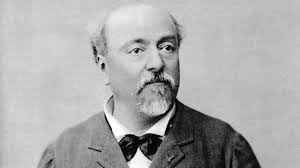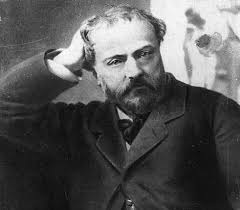Emmanuel Chabrier was a prominent figure in the realm of French classical music during the late 19th century. Born on January 18, 1841, in Ambert, France, he demonstrated a profound musical talent from an early age. Despite being trained as a civil servant and initially pursuing a career in law, Chabrier’s passion for music eventually led him down a different path.
In his early twenties, Chabrier moved to Paris, where he immersed himself in the city’s vibrant musical scene. He befriended several influential composers and artists of the time, including Claude Debussy, Paul Verlaine, and Vincent d’Indy. Through these connections, he gained exposure to a wide array of musical styles and ideologies, which would later influence his own compositions.
Chabrier’s music is characterized by its vibrant energy, colorful orchestration, and harmonic innovation. He was particularly known for his ability to blend elements of French folk music with the grandeur of the Romantic tradition. His compositions often exude a sense of joy and playfulness, reflecting his own buoyant personality.
One of Chabrier’s most famous works is his orchestral rhapsody, “España,” inspired by his travels to Spain. Premiered in 1883, “España” captivated audiences with its exotic melodies and rhythmic vitality, establishing Chabrier as a leading voice in French orchestral music.
In addition to his orchestral works, Chabrier also composed a variety of operas, piano pieces, and songs. His opera “L’étoile” (The Star), first performed in 1877, showcases his wit and humor, drawing on the traditions of French operetta while pushing boundaries with its innovative harmonic language.
Despite his success as a composer, Chabrier faced numerous challenges throughout his life, including financial difficulties and health problems. However, his unwavering dedication to his craft allowed him to overcome these obstacles and leave behind a lasting legacy.
Emmanuel Chabrier passed away on September 13, 1894, at the age of 53, leaving behind a rich body of work that continues to be celebrated and performed to this day. His contributions to French music have earned him a revered place in the pantheon of classical composers, with his compositions remaining cherished gems of the repertoire.


Comments are closed